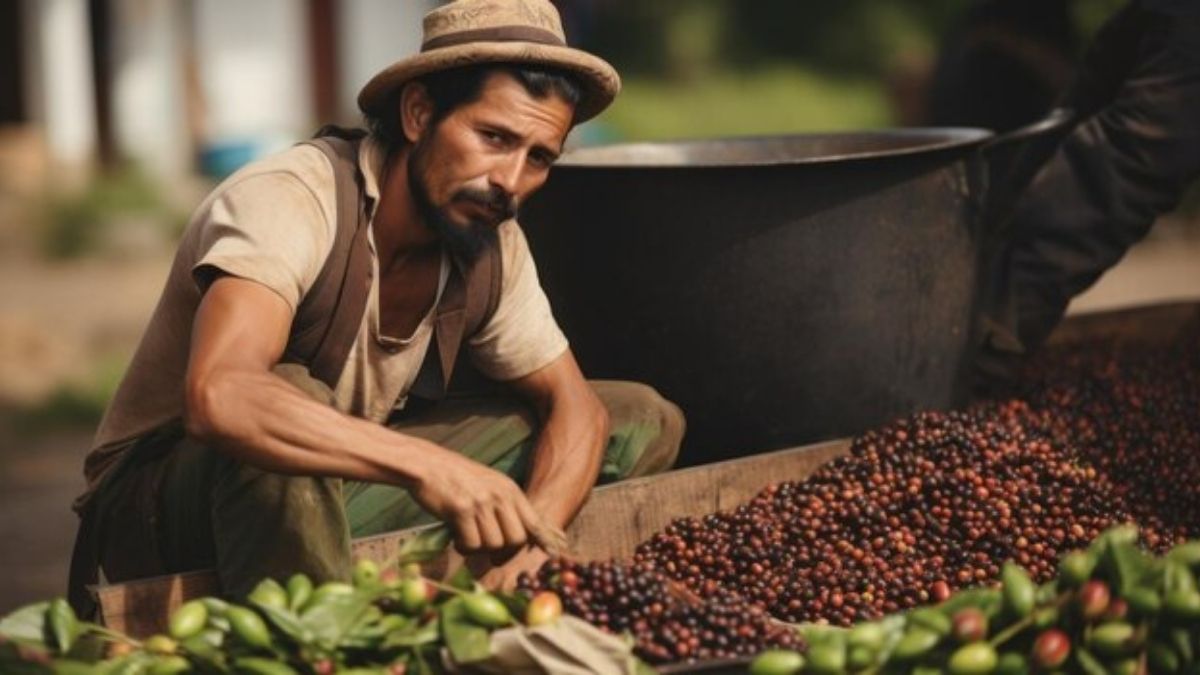In the lush hills of Honduras, where coffee beans thrive under warm sun rays and cool breezes, a transformation is brewing. Enter Agile Project Management of Coffee Internationally in Honduras—a dynamic approach that’s reshaping how coffee production happens on these fertile grounds. This methodology isn’t just for tech startups; it has found its way into agriculture, particularly in the vibrant world of coffee farming.
Imagine farmers collaborating closely with distributors and consumers to produce a better product while responding swiftly to market demands. That’s the essence of Agile—a framework that encourages flexibility, teamwork, and continuous improvement. As we explore the fascinating intersection between Agile project management and the international coffee trade in Honduras, you’ll discover not only how this method enhances productivity but also why it’s crucial for staying competitive in today’s fast-paced market.
Join us as we delve deeper into this innovative approach within one of Central America’s most beloved exports!
The Importance of Agile in the Coffee Industry
Agile methodologies have become crucial in the fast-paced coffee industry. They allow producers to quickly adapt to market changes and consumer preferences.
For coffee growers, flexibility is vital. Weather patterns can shift unexpectedly, impacting crop yields. Agile practices help farmers respond swiftly to such challenges by adjusting their strategies on-the-fly.
Moreover, transparency across supply chains fosters collaboration among stakeholders. Farmers can communicate more effectively with distributors and retailers, ensuring a smoother flow of information.
This responsiveness not only enhances product quality but also boosts customer satisfaction. With Agile project management, businesses can introduce innovative offerings that resonate with evolving tastes.
Additionally, embracing agility cultivates a culture of continuous improvement within teams. This leads to better problem-solving capabilities and ultimately drives growth in an ever-competitive market like coffee production.
Case Study: Implementing Agile in a Coffee Farm in Honduras
In a lush region of Honduras, a coffee farm took the innovative leap to adopt Agile Project Management. The goal was simple: optimize production and enhance quality while responding swiftly to market demands.
The team began with daily stand-up meetings, allowing everyone from harvesters to managers to share updates and address issues immediately. This open communication fostered collaboration and accountability across all levels.
Sprint planning sessions focused on short-term goals, such as improving bean quality or reducing waste during processing. Each cycle brought valuable feedback that informed subsequent sprints, creating a continuous loop of improvement.
As challenges emerged—like unpredictable weather patterns—the Agile approach enabled quick pivots in strategy. Teams learned to adapt their workflows efficiently without sacrificing quality or output.
This real-time responsiveness not only boosted morale but also led to higher customer satisfaction as farmers saw their coffee consistently meet evolving taste preferences worldwide.
Benefits of Using Agile in Coffee Production and Distribution
Agile Project Management of Coffee Internationally in Honduras offers numerous benefits for coffee production and distribution. One key advantage is flexibility. Coffee farmers can adapt quickly to changes in weather patterns or market demands, ensuring they remain competitive.
Another significant benefit is enhanced collaboration. Agile encourages teamwork among all stakeholders—farmers, distributors, and retailers—which fosters a sense of community and shared goals.
Moreover, Agile emphasizes continuous improvement. By regularly reviewing processes and outcomes, farms can identify inefficiencies early on and implement solutions swiftly.
Additionally, the iterative nature of Agile allows producers to test new methods or crops in smaller batches before full-scale implementation. This minimizes risk while maximizing innovation.
Customer feedback is integral to Agile practices. Listening to buyer preferences ensures that products align with consumer trends, leading to higher satisfaction levels and increased sales potential.
Challenges and Solutions in Applying Agile to Coffee Internationally
Applying Agile Project Management of Coffee Internationally in Honduras comes with its own set of challenges. One significant hurdle is the cultural shift required for teams accustomed to traditional farming methods. Embracing an iterative process can be daunting.
Communication barriers also pose a problem, especially when working with global partners. Misunderstandings can arise, leading to project delays and frustration among stakeholders.
Time zone differences complicate collaboration further. Synchronizing meetings and updates across regions requires careful planning and flexibility from all involved parties.
To address these challenges, training sessions focused on Agile principles can help bridge gaps in understanding. Utilizing collaborative tools like Slack or Trello enhances real-time communication.
Fostering a culture of transparency encourages team members to voice concerns early on. Regular feedback loops ensure everyone stays aligned with project goals, ultimately driving success in this dynamic industry.
Success Stories of Companies Using Agile in the Coffee Industry
Several companies have embraced Agile Project Management of Coffee Internationally in Honduras, transforming their operations and boosting productivity. One such success story is Café Orgánico Marcala. By adopting Agile methodologies, they improved communication among team members and streamlined processes.
Another notable example is the cooperative Compañía de Cafés Especiales de Honduras. They utilized Agile to enhance collaboration between farmers and distributors, leading to faster decision-making and better product quality. This approach allowed them to adapt quickly to market demands.
Additionally, several small-scale roasters have reported increased efficiency by implementing Scrum frameworks. These organizations can now respond promptly to customer feedback, resulting in higher satisfaction rates and repeat business.
Through these stories, it’s evident that Agile principles foster innovation within the coffee sector while supporting sustainable practices across the supply chain. Companies are not only thriving but also setting new standards for excellence in coffee production.
Conclusion
The world of coffee is evolving, and Agile Project Management of Coffee Internationally in Honduras is leading the charge in transforming how this beloved beverage reaches our cups. By embracing Agile principles, coffee producers in Honduras are not only improving their production processes but also enhancing quality and responsiveness to market demands.
The unique challenges faced by coffee farms—ranging from unpredictable weather patterns to fluctuating global prices—require a flexible approach. Through iterative planning, constant feedback loops, and collaborative teamwork, these farmers can adapt swiftly to changes. The success stories emerging from Honduras highlight the potential of Agile methodologies in fostering innovation within the coffee industry.
As more companies recognize the value of agility, we can anticipate a shift towards greater efficiency and sustainability in coffee production internationally. This journey may be just beginning for many growers who seek competitive advantages through Agile practices.
Thus, as we sip our next cup of Honduran brew, let’s appreciate not just its rich flavor but also the sophisticated project management techniques that helped bring it to our table. Embracing change has never been more crucial—or deliciously rewarding.











